Prince William honours 'holocaust hero'
- Published
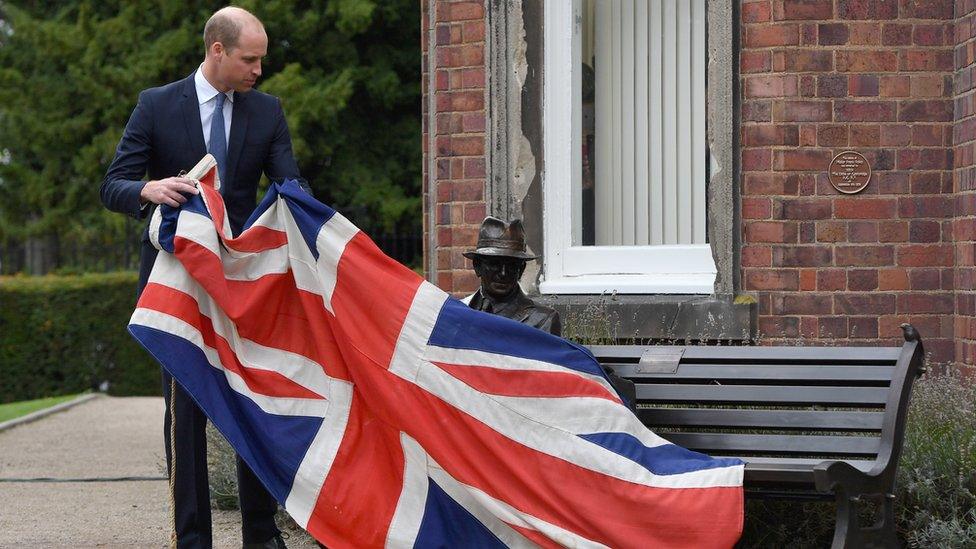
Prince William unveiled the statue of the MI6 spy in front of his family and some Holocaust survivors he had helped to rescue
Prince William has unveiled a statue to commemorate a "quiet, unassuming" British spy who saved thousands of Jews from Nazi persecution.
Maj Frank Foley posed as a passport control officer in Berlin in the 1920s and 30s, providing visas to people at risk due to Nazi racial laws.
The statue was unveiled in Stourbridge where Mr Foley spent his retirement years before his death in 1958.
Honouring him, MI6 described him as "a true British hero".
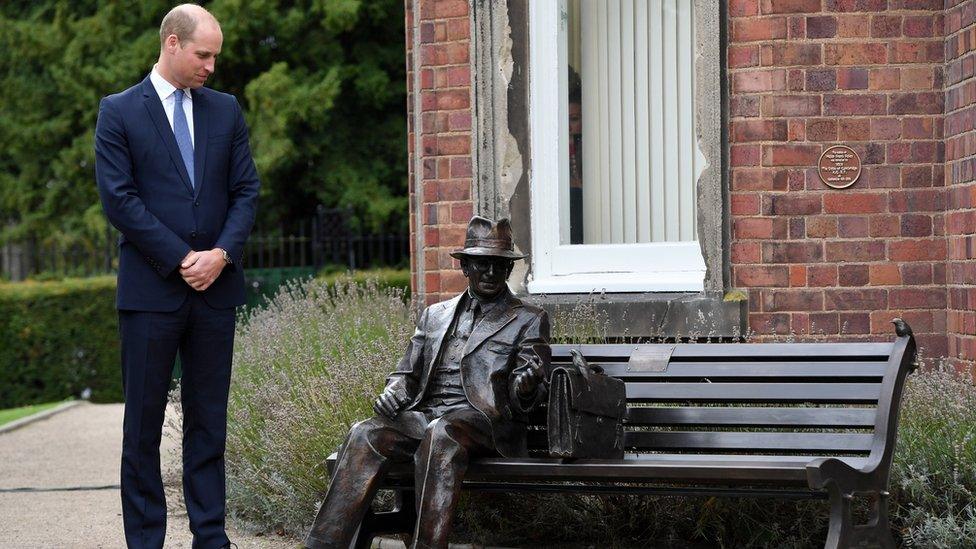
The statue was unveiled in Mary Stevens Park in Stourbridge, where Mr Foley lived
"Frank Foley did not carry out his work for personal gain," MI6 said in January.
"Indeed, many of those he saved knew nothing of the quiet, unassuming British man at the consulate who saved them."
He is credited with saving the lives of more than 10,000 people.
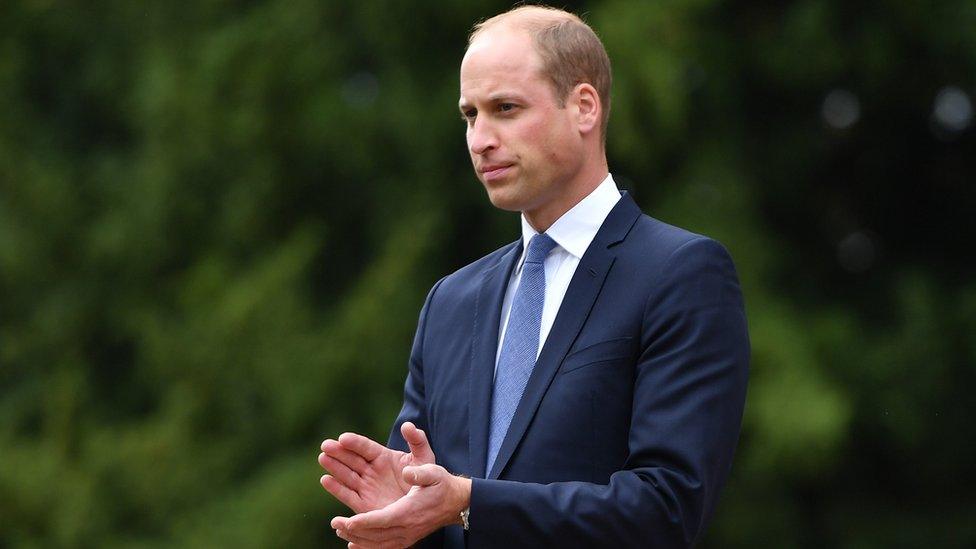
The Duke of Cambridge met Holocaust survivors who had been saved by Mr Foley
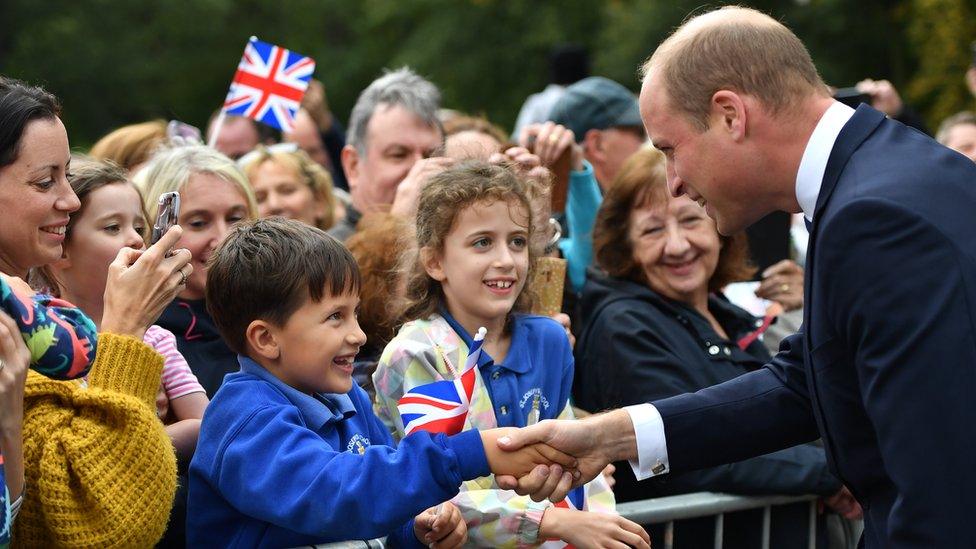
A small audience was invited to watch the short ceremony in Stourbridge
Maj Foley's great-nephew Stephen Higgs said the unveiling of the statue was a "hugely proud moment for his family".
Michael Mamelok, who managed to leave Berlin thanks to the efforts of Maj Foley, told the prince his story saying that without Maj Foley, he or 17 of his descendants, would not be here today.
Earlier, the prince visited the University of Birmingham, where he made a speech at the National SkillForce graduation ceremony - a scheme aiming to build the character and confidence of young people.
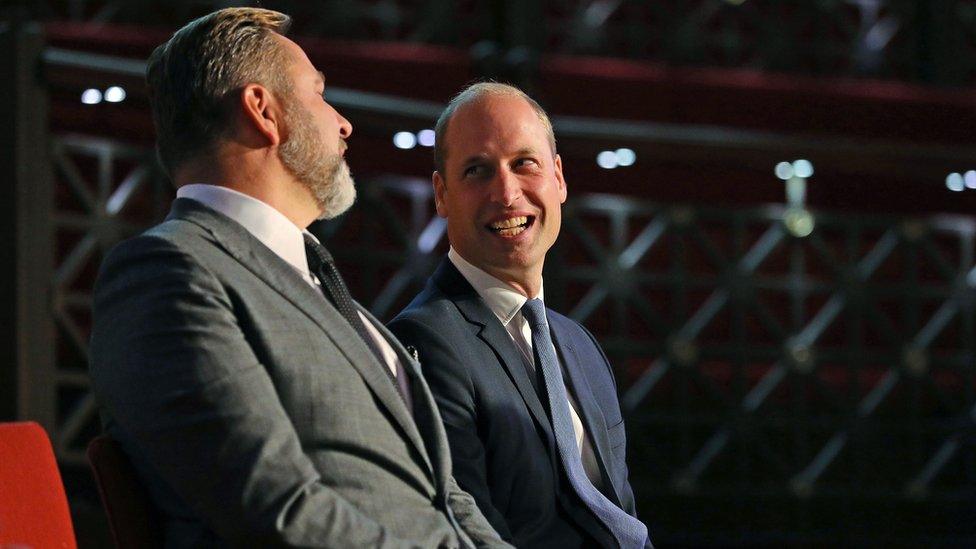
David Walliams introduced the Duke as "not the ginger one" at the National SkillForce ceremony at the University of Birmingham
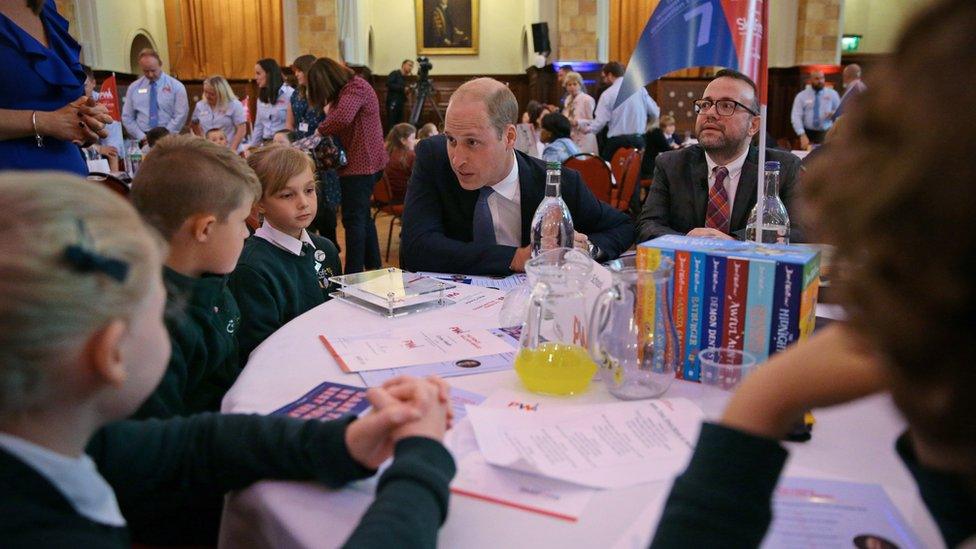
The National SkillForce Prince William Award aims to help young people build their confidence, character and resilience
He also visited Acorns Children's Hospice in Selly Oak as part of its 30th anniversary celebrations.
The hospice has provided care for more than 870 children since it was opened by Princess Diana in 1988.
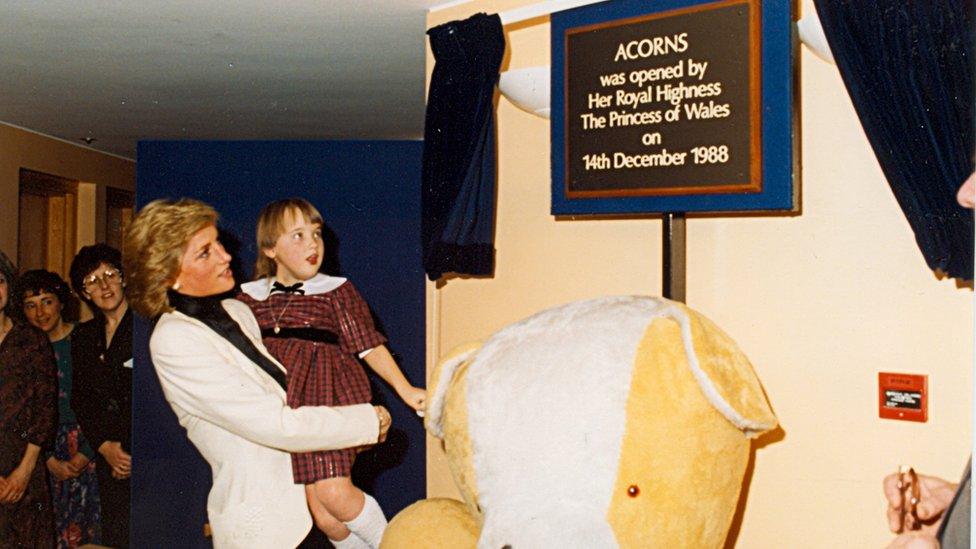
The Duke of Cambridge visited Acorns Children's Hospice in Selly Oak, 30 years after it was opened by his mother
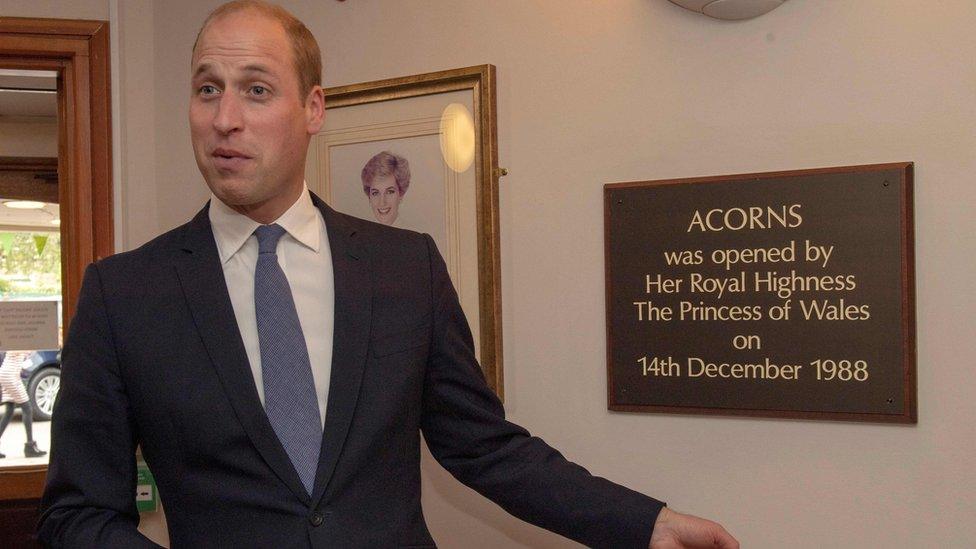
Acorns Children's Hospice said the prince's visit "means more than we can say"